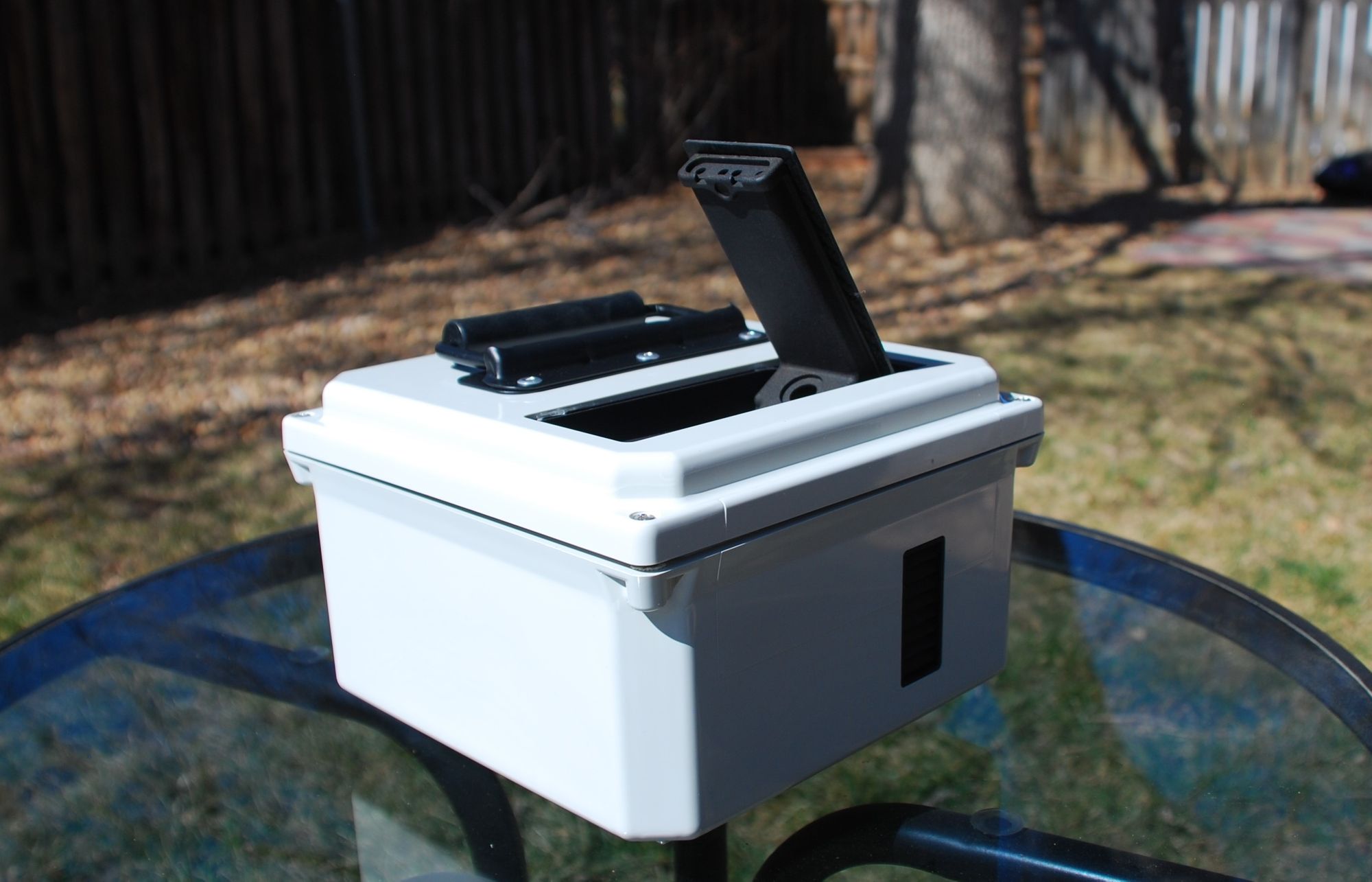First off, what is CEAMS?
CEAMS stands for “Citizen-Enabled Aerosol Measurements for Satellites.” That sounds cool, but it doesn’t tell you what CEAMS is. CEAMS is a network of citizen scientists taking air-quality measurements in their backyards.
"A partnership implies that we are working together, and we hope that you will see CEAMS that way."
What (or who!) are “citizen scientists”? There isn’t one universal definition of citizen science. For us, citizen science is a collaborative effort wherein volunteers help researchers collect scientific data. And this data isn’t just collected for fun; it is collected to help answer research questions, provide meaningful information to communities, and, hopefully, increase participants’ understanding of air quality science. In CEAMS, this collaboration, or partnership, is between volunteers and scientists at Colorado State University. Scientists at CSU designed the sampler that participants will use to collect data (pictured below). Participants set this sampler up in their backyards and use it to take measurements. Those measurements are sent back to the CSU scientists who will analyze it. And by “analyze,” we mean that they will study how the air-quality measurements change over time, compare measurements at different locations, and try to better understand regional air quality in general.

Okay, so we keep mentioning “air quality”, what are we talking about? “Air quality” refers to the condition of the air, and poor air quality means that the air contains pollutants like gases and small particles. These small particles can come from a variety of sources (vehicle exhaust, wood burning, road dust, etc.).Breathing in these particles can impact your health. The device used in the CEAMS network measures these particles in the air in three different ways. We will discuss those different measurements more in a future blog post, but our measurements will show how air quality changes throughout the day and season, how air quality varies across neighborhoods in a city, and what different sources impact local air quality. There is a lot of exciting information we hope to gain from CEAMS measurements.
You are probably still wondering “How are these measurements for satellites?” Right, that is an important part of this project! CEAMS is funded by NASA. NASA has satellites that take pictures of the Earth. Some of these satellites monitor global air quality from space. These satellites give us a big-picture idea of air quality, but they cannot always tell us what air quality is like at the ground in different communities. By having citizen scientists take the same air-quality measurements in their backyards that the satellites do, we hope that our CEAMS measurements will help connect these big-picture views of air quality and local, on-the-ground air quality.
There are lots more details and information we can give you, and we will. Keep reading our weekly blog to learn more about CEAMS!

